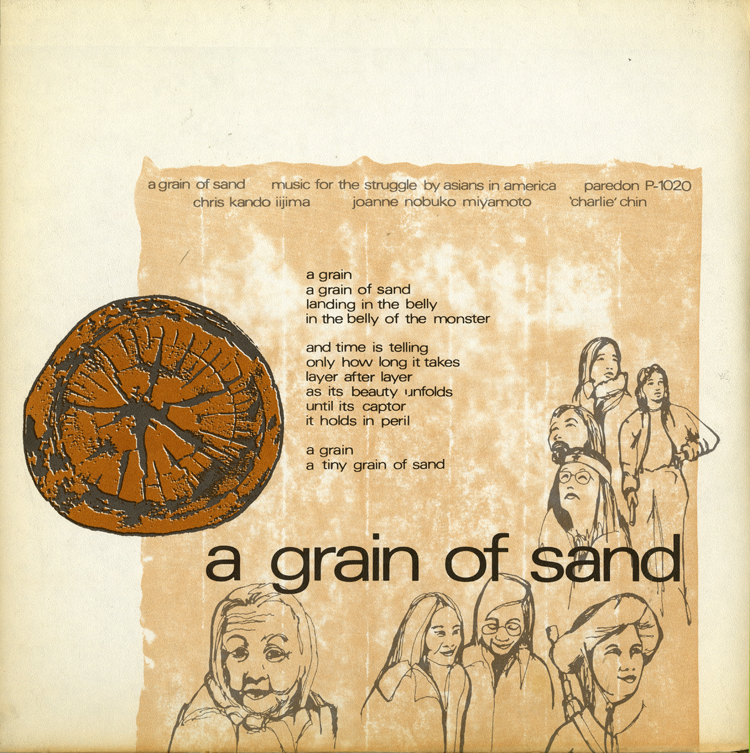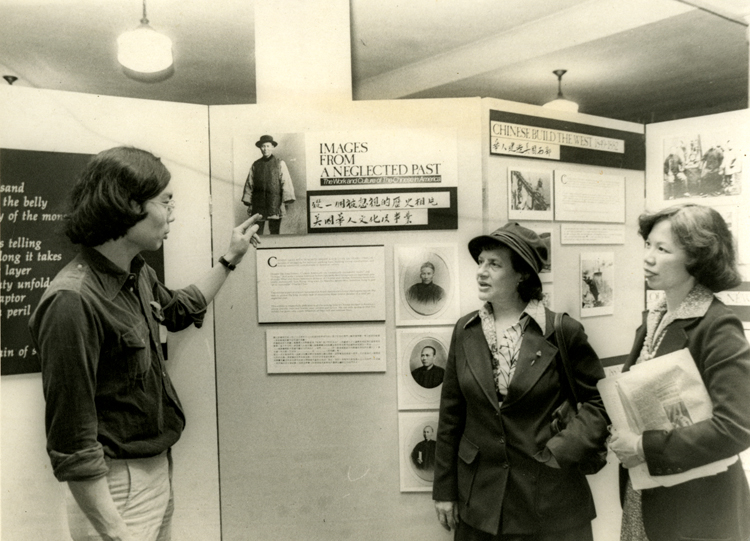《一粒沙:献给在美国奋斗的亚裔的歌》(A Grain of Sand: Music for the Struggle of Asians in America),是公认的第一张亚裔美国人的音乐专辑。在这张专辑中,克里斯·饭岛(Chris KandoIijima)、宫本信子(Nobuko JoAnne Miyamoto)和陈健文(William“Charlie” Chin)试图用语言表达他们作为活动家和亚裔美国人所得出的所有政治和个人结论。就个人而言,他们认为自己的音乐“主要是政治性的,而音乐只是其中的一部分。”在歌曲“黄珍珠”(Yellow Pearl)中,他们将在美国遭受压迫的亚裔美国人与一粒被困在牡蛎中的沙子联系起来。在“我们就是那些孩子”(We Are The Children)中,他们描述了在二战期间被关在拘留营中的日裔美国人的经历。在“我们是亚洲人”(Somos Asiaticos)中,他们直接与拉丁裔社区对话,表达了我们在斗争中的相似之处。其他歌曲涉及战争、压迫、资本主义和社会经济斗争等主题,它们使人们看到并质疑关于亚裔美国人和其他在美国受压迫群体所受到的不人道待遇。
Collections馆藏Collections馆藏Collections馆藏Collections馆藏Collections馆藏Collections馆藏Collections馆藏Collections馆藏Collections馆藏Collections馆藏Collections馆藏Collections馆藏Collections馆藏Collections馆藏Collections馆藏Collections馆藏Collections馆藏Collections馆藏Collections馆藏Collections馆藏Collections馆藏Collections馆藏Collections馆藏Collections馆藏Collections馆藏Collections馆藏Collections馆藏Collections馆藏Collections馆藏Collections馆藏Collections馆藏Collections馆藏Collections馆藏Collections馆藏Collections馆藏Collections馆藏Collections馆藏Collections馆藏Collections馆藏Collections馆藏Collections馆藏Collections馆藏Collections馆藏Collections馆藏Collections馆藏Collections馆藏Collections馆藏Collections馆藏Collections馆藏Collections馆藏Collections馆藏Collections馆藏Collections馆藏Collections馆藏Collections馆藏Collections馆藏Collections馆藏Collections馆藏Collections馆藏Collections馆藏Collections馆藏Collections馆藏Collections馆藏Collections馆藏
《一粒沙》

26 April 2019 Posted.
A Grain of Sand. Courtesy of Henry Chu, Museum of Chinese in America (MOCA) Collection.
1882年5月19日美国财政部通函,Scott Seligman捐赠,美国华人博物馆(MOCA)馆藏

